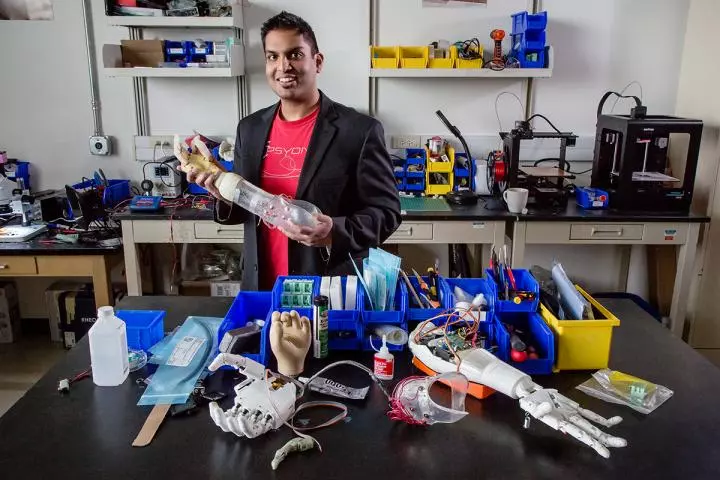We've already heard about prosthetic arms/hands that provide people with a sense of touch, although there can be problems with the devices, sometimes resulting in users either getting a painful shock or feeling nothing at all. That may not be the case for much longer, though, thanks to a new electronic module.
Such enhanced artificial limbs typically have pressure-sensitive sensors in the fingertips, that are wired to electrodes which are applied to the user's skin where the prosthesis attaches. The more pressure that is applied to the sensors, the greater the amount of mild electrical feedback that is used to stimulate nerves in the user's skin.
Should those electrodes start to peel off, however, electrical current can build up in the part that remains attached, giving the user a shock. It's also possible for sweat to accumulate between the electrode and the skin, impeding the connection between the two, which results in little or even no feedback being delivered.
Developed by a University of Illinois team led by Prof. Timothy Bretl, the new prosthesis-mounted module uses a custom control algorithm to automatically regulate the current that's delivered to the skin, so that the level of feedback remains consistent despite peeling or sweating.
"When current is sent across the skin, the module monitors the electrical resistance of the user's skin at the point where the electrodes make contact," MD/PhD student Aadeel Akhtar explains to us. "We determine the perceived sensation intensity using the current amplitude, pulse duration, and resistance."
In tests performed on two volunteer amputees, the reported level of feedback remained stable and shock-free, even when the electrodes were peeled off by up to 75 percent. There was also no reduction in sensation after the test subjects performed activities intended to make them sweat – by contrast, when the device wasn't used, they reported a complete loss of sensation by the end of the activities.
The scientists are now working on miniaturizing the module so that it will fit inside the prosthesis, and plan on conducting more extensive trials. Ultimately, they hope the device will be covered by patients' insurance, meaning there would be no out-of-pocket costs to users.
"We want our users to be able to reliably feel and hold things as delicate as a child's hand," says Akhtar, who is the lead author of a paper on the research. "This is a step toward making a prosthetic hand that becomes an extension of the body rather than just being another tool."
The paper was recently published in the journal Science Robotics.
Source: University of Illinois





